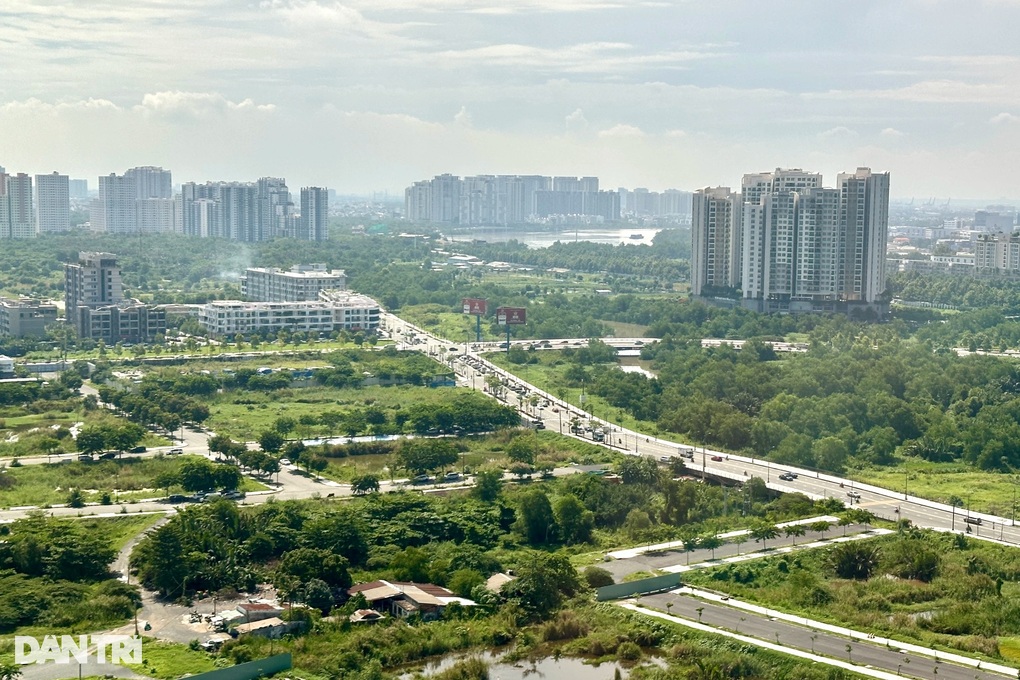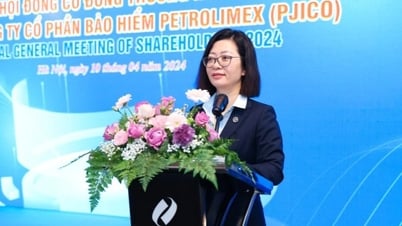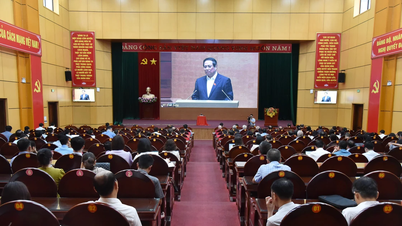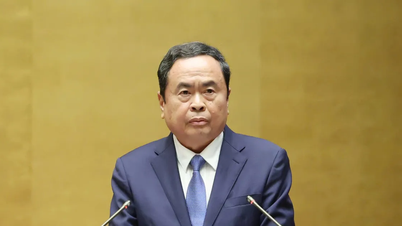On May 15, in Ho Chi Minh City, the Southern Institute of Social Sciences and the University of Finance and Marketing jointly organized the Workshop "Solutions to effectively implement Resolution No. 68 of the Politburo on private economic development in the new development era of Vietnam".
Sharing at the opening of the event, Associate Professor, Dr. Vu Tuan Hung commented that the birth of Resolution 68 is an important milestone, demonstrating the strategic vision and strong political determination of the Party in promoting the development of the private economic sector, an important driving force of the national economy.
According to Mr. Hung, in recent times, the private economy has faced many barriers in terms of institutions, business environment and access to resources. Policy implementation has not been consistent and there is a lack of connection between entities in the ecosystem.

Many experts say the private economy still faces many barriers in terms of institutions and the business environment (Illustration: Nhat Quang).
In the new context of technology, digital transformation and deep integration, the effective implementation of Resolution 68 is urgent, requiring coordination from the entire political system, businesses and experts.
Also within the framework of the workshop, Associate Professor Dr. Tran Dinh Thien - Member of the Prime Minister 's Policy Advisory Council - emphasized the role of the "most important driving force" of the private economy for Vietnam's economic growth in the new period. He said that establishing this position is a breakthrough in thinking, helping to remove the ideological "golden hoop" that has restrained the private sector for many years.
According to him, Vietnam's economy still has a dualistic structure, with clear discrimination between the domestic private sector and the foreign-invested sector. The private sector, which plays a major role in the domestic sector, is still "very weak", constrained by institutional barriers, access to land and capital, and facing an unequal business environment.
He emphasized that the important thing for the development of the private economy is not preferential treatment, but only a free and equal environment. That is the nature of the market economy. Creating fair development opportunities for private enterprises is the key factor to achieve ambitious growth targets, even aiming for double-digit growth like the "Asian miracles".
He also made many specific recommendations such as allocating land in industrial parks for innovative private enterprises, designing a fund to support access to capital, supporting start-ups, promoting venture capital, and especially, taking advantage of Ho Chi Minh City's role as a leading reformer in institutional piloting. The major goal is to upgrade the number of individual businesses to enterprises, aiming for the target of 2 million private enterprises in the coming time.
Associate Professor, Dr. Vu Tuan Hung, Deputy Director in charge of the Southern Institute of Social Sciences, proposed 6 key groups of solutions to promote the strong and sustainable development of the private economic sector.
According to him, it is necessary to improve the legal system in a modern and transparent manner, ensuring equal access to resources and protecting the ownership and business rights of private enterprises. Along with that, the Government should improve the investment environment, eliminate sub-licenses, reduce informal costs and promote digital government.
He emphasized the need to support businesses in improving their competitiveness, technological innovation, promoting start-ups and developing small and medium enterprises. At the same time, developing high-quality human resources in line with the requirements of the digital economy and green economy.
The State also needs to expand access to resources such as credit, land, technology, capital markets and promote public-private partnerships in infrastructure investment. Finally, strengthen the role of Party organizations, trade unions and mass organizations in enterprises to accompany and support the stable development of the private sector.
From a business perspective, Mr. Do Ha Nam - Chairman of the Board of Directors and General Director of Intimex Group Joint Stock Company believes that in order for the private economy to develop substantially, it is necessary to focus on removing three major "bottlenecks": capital, land, and high-quality human resources.

Mr. Do Ha Nam (sitting in the middle) shared at the discussion session (Photo: Vi Quang).
Firstly, in terms of capital, most private enterprises, especially in the agricultural and processing sectors, still have difficulty accessing long-term credit, while investment demand is high. He proposed increasing links between large and small enterprises to share resources, while stabilizing tax and credit policies to avoid disruptions in cash flow.
Mr. Nam also said that land use planning is still inflexible, making it difficult for businesses to build processing plants associated with raw material areas. He recommended reforming procedures and allocating appropriate land funds to attract investment in deep processing and increase the value of agricultural products.
Third, the problem lies in the lack of high-tech human resources that is hindering businesses from transforming technology. He proposed to strengthen cooperation between businesses and training institutions to meet the human resource needs in industries applying automation and high technology.
Source: https://dantri.com.vn/kinh-doanh/kinh-te-tu-nhan-can-moi-truong-tu-do-binh-dang-thay-vi-duoc-uu-dai-20250515140720654.htm


![[Photo] General Secretary To Lam visits exhibition of achievements in private economic development](https://vphoto.vietnam.vn/thumb/1200x675/vietnam/resource/IMAGE/2025/5/18/1809dc545f214a86911fe2d2d0fde2e8)

![[Photo] More than 17,000 candidates participate in the 2025 SPT Competency Assessment Test of Hanoi National University of Education](https://vphoto.vietnam.vn/thumb/1200x675/vietnam/resource/IMAGE/2025/5/17/e538d9a1636c407cbb211b314e6303fd)

![[Photo] National conference to disseminate and implement Resolution No. 66-NQ/TW and Resolution No. 68-NQ/TW of the Politburo](https://vphoto.vietnam.vn/thumb/1200x675/vietnam/resource/IMAGE/2025/5/18/adf666b9303a4213998b395b05234b6a)




















![[Photo] Prime Minister Pham Minh Chinh chairs meeting on science and technology development](https://vphoto.vietnam.vn/thumb/1200x675/vietnam/resource/IMAGE/2025/5/17/ae80dd74c384439789b12013c738a045)





























































Comment (0)